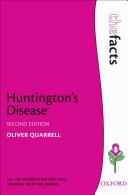| Listing 1 - 3 of 3 |
Sort by
|
Book
ISBN: 0199742472 9780199742479 9780195393514 0195393511 Year: 2011 Publisher: Oxford New York
Abstract | Keywords | Export | Availability | Bookmark
 Loading...
Loading...Choose an application
- Reference Manager
- EndNote
- RefWorks (Direct export to RefWorks)
The involuntary movement disorder known as chorea can be due to a wide variety of neurological conditions, both genetic and acquired. This volume provides a comprehensive account of these conditions. While Huntington's disease is the prototypic inherited chorea, with the development of the genetic test for this disorder it has become apparent that a small but significant proportion of patients with this phenotype do not have this diagnosis. Although less common than Huntington's disease, it is vital to correctly diagnose these patients with advances in molecular medicine, it is now easier to i
Chorea --- Diagnosis, Differential. --- Differential diagnosis --- Diagnosis --- Saint Vitus's dance --- St. Vitus's dance --- Extrapyramidal disorders --- Diagnosis.
Book
ISBN: 1447164555 1447164547 1322132321 Year: 2014 Publisher: London : Springer London : Imprint: Springer,
Abstract | Keywords | Export | Availability | Bookmark
 Loading...
Loading...Choose an application
- Reference Manager
- EndNote
- RefWorks (Direct export to RefWorks)
Chorea: Causes and Management provides a comprehensive and timely update for the wide variety of neurological conditions, both inherited and acquired, which result in this common hyperkinetic movement disorder. This book describes in detail the latest clinical and etiological information regarding chorea. Management strategies, pathophysiology, and associated medical and psychiatric problems associated with chorea are also addressed. The nineteen chapters are contributed by internationally-recognized authors working at the forefront of research in the specific disorders linked to chorea. Chorea: Causes and Management is aimed at an audience of neurologists, psychiatrists, neuropsychologists, specialists in medical genetics, clinical and basic researchers in neurosciences, and generalist clinical physicians with an interest in movement disorders.
Chorea. --- Saint Vitus's dance --- St. Vitus's dance --- Extrapyramidal disorders --- Neurology. --- Psychiatry. --- Psychology, clinical. --- Neurosciences. --- Human genetics. --- Neuropsychology. --- Human Genetics. --- Medicine and psychology --- Mental health --- Psychology, Pathological --- Medicine --- Nervous system --- Neuropsychiatry --- Genetics --- Heredity, Human --- Human biology --- Physical anthropology --- Neural sciences --- Neurological sciences --- Neuroscience --- Medical sciences --- Diseases --- Neurology . --- Neurophysiology --- Psychophysiology

ISBN: 1283579944 9786613892393 0191549681 0191607371 9780191549687 9780199212019 0199212015 9781283579940 Year: 2008 Publisher: Oxford Oxford University Press
Abstract | Keywords | Export | Availability | Bookmark
 Loading...
Loading...Choose an application
- Reference Manager
- EndNote
- RefWorks (Direct export to RefWorks)
Huntington's disease is a genetically inherited condition which results in severe nerve-cell damage in the brain. The hereditary and debilitative nature of the disease means that many people are involved either directly or indirectly by this condition. The recent identification of the faulty gene involved has made the diagnosis of this condition simpler. The majority of people develop the disease between the ages of 35 and 55 years, so for those aware of their genetic risk there aredilemmas to consider - should you have a test to see if you have the gene? Should you start a family?The new edit
Huntington's chorea --- Chorea. --- Saint Vitus's dance --- St. Vitus's dance --- Extrapyramidal disorders --- Chronic progressive chorea --- Chronic progressive hereditary chorea --- Degenerative chorea --- HC (Disease) --- HD (Disease) --- Hereditary chorea --- Huntington chorea --- Huntington chronic progressive hereditary chorea --- Huntington disease --- Lund-Huntington chorea --- Microcellular striatal syndrome --- Progressive hereditary chorea, Chronic --- Chorea --- Dementia --- Genetic disorders --- Nervous system --- Degeneration --- Ziekte van Huntington --- Ziekten --- Ziekte
| Listing 1 - 3 of 3 |
Sort by
|

 Search
Search Feedback
Feedback About UniCat
About UniCat  Help
Help News
News